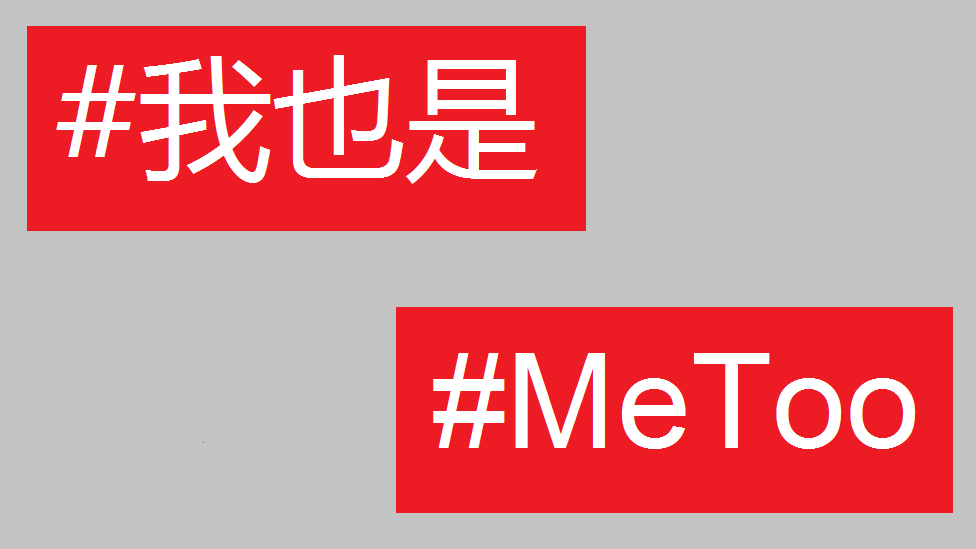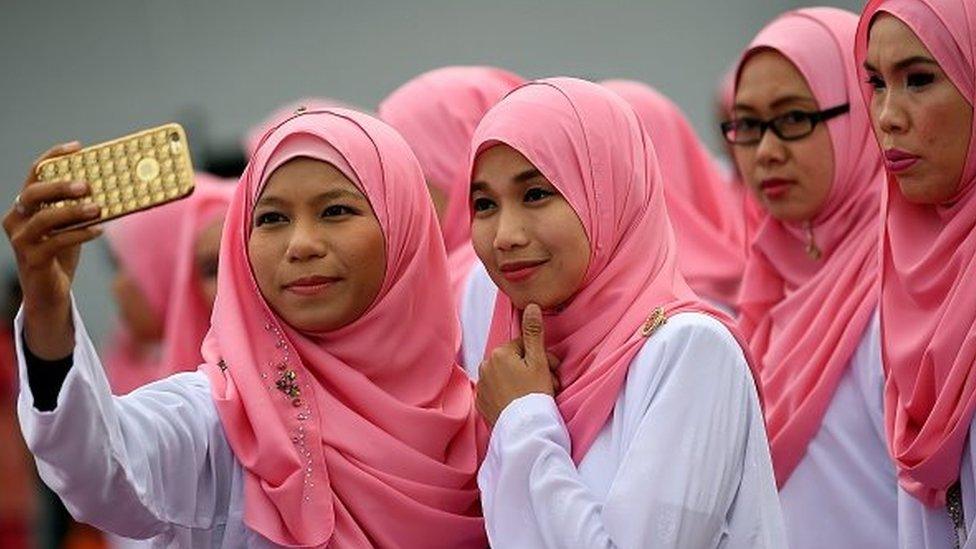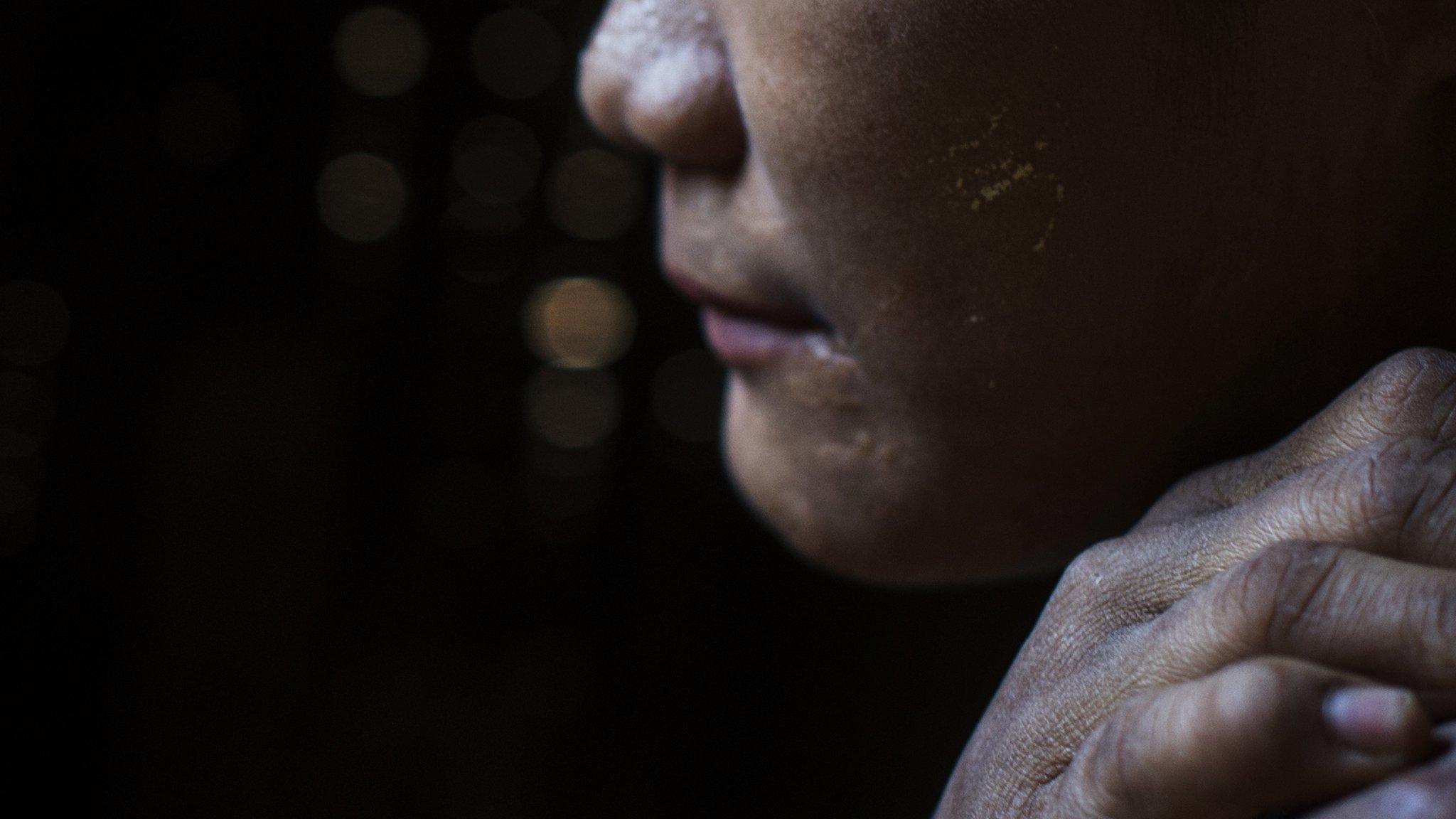100 Women: National Union of Journalists Malaysia sorry for 'sexy outfit' advice
- Published

A journalism union in Malaysia has apologised after telling female reporters they shouldn't wear "sexy outfits" if they want to avoid harassment.
The National Union of Journalists (NUJ) Malaysia has issued a new statement saying the "appearance of a journalist should not be blamed as a cause of sexual harassment".
NUJ Malaysia had previously told female journalists to "be firm" with harassers.
Their comments came after two female Malaysian journalists accused politicians of groping and propositioning them.
The president of NUJ Malaysia, Mohd Taufek Razak, gave an interview to online news portal MalaysiaKini on Tuesday.
His comments, including the idea that it is natural for harassment to happen if women attract the attention of men, were then released to the press by NUJ Malaysia.
The online abuse hurled at Malaysia's Muslim women
Denying sex is abuse, Malaysia MP says
Is the #MeToo movement finally coming to China?
Journalists and activists have since hit back, some accusing at NUJ Malaysia of victim-blaming.
"We need to stop placing the burden on women to avoid sexual harassment, and instead hold men to a higher standard," says Tan Heang-Lee, communications officer at Women's Aid Organisation (WAO).
"We believe that the cases of sexual harassment involving women journalists and male politicians are not isolated incidents, but are rampant."
The original news article on Asian Correspondent, external detailed the sexual harassment of female journalists in Malaysia, Indonesia and the Philippines by local politicians, including a minister.
But is not the first time such allegations have been levelled in Malaysia.
Last November, Malaysian MP Ong Kian Ming wrote an op-ed, external in which he explained how his female guest from overseas was harassed by a deputy minister during her visit to Parliament.
What did the original statement say?
In the first statement Mr Razek acknowledged that the issue of sexual harassment towards female journalists by politicians is not new in Malaysia.
When asked how accusations should be investigated he said: "If the journalist has concrete evidence like a recording, witnesses or such, it is best to lodge police reports.
"The problem is victims are either embarrassed to lodge police reports, or put in an awkward position in order to maintain good ties with the politician."
Mr Razek then went on to make comments that many female journalists felt were "unhelpful" and "dangerous".
He said female journalists should have an "appropriate manner" and "be firm" while on the job.
For "attractive" female journalists, "harassment can easily happen if both parties consent to it", he added.
NUJ Malaysia's latest statement distances the union from the comments made by their president Mr Razek.
"We do not endorse such a stance. The Union also regrets the impression given by specific remarks that appeared to victim blame," it stated.
But many were clearly still extremely disappointed.
Allow X content?
This article contains content provided by X. We ask for your permission before anything is loaded, as they may be using cookies and other technologies. You may want to read X’s cookie policy, external and privacy policy, external before accepting. To view this content choose ‘accept and continue’.
Allow X content?
This article contains content provided by X. We ask for your permission before anything is loaded, as they may be using cookies and other technologies. You may want to read X’s cookie policy, external and privacy policy, external before accepting. To view this content choose ‘accept and continue’.
"The NUJ's response was actually harmful to the progress of women in the workplace as it reinforces the idea that women are held to a different standard to men, " says freelance journalist Samantha Cheh.
"Women already face an uphill battle to be taken seriously in Malaysia's work spaces. We have to adhere to stricter standards of dress and behaviour, and it restricts our ability to do our work to the fullest extent."
Malaysia has been described as one of the world's more moderate Muslim nations.
Some women dress modestly because of certain societal expectations.
While there are no laws forcing women to wear the hijab, some areas are more strict about enforcing modest dress than others and there are different rules for some government buildings and libraries.
Kate Ng, co-editor of lifestyle website Wait A Minute Now, says female journalists in Malaysia are no strangers to unwanted sexual behaviour and that women must continue to speak up to stop men abusing positions of power.
"It's truly disappointing to know that this is the way men in positions of power think," she says.
There are now calls from the Institute of Journalists Malaysia (IoJM) that media organisations should adopt complaint mechanisms to ensure action is taken in cases of journalists facing sexual harassment from politicians or other public figures.

What is 100 Women?
BBC 100 Women names 100 influential and inspirational women around the world every year. For our 2017 season we challenged them to tackle four of the biggest problems facing women today - the glass ceiling, female illiteracy, harassment in public spaces and sexism in sport. Find us on Facebook, external, Instagram, external and Twitter, external and use #100Women
- Published6 January 2018

- Published21 August 2017

- Published27 July 2017
